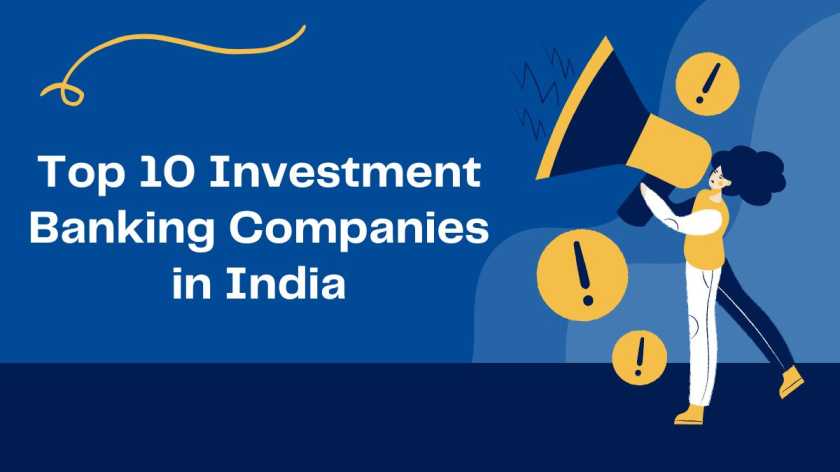The need for investment banking jobs has increased along with the growth of investment banking companies in India over the past several decades. Due to the rapidly expanding Indian economy and the entrance of international corporations, investment banks are crucial for managing transactions, providing money for projects, and supporting capital market activities.
The most prominent investment banking organisations, both locally and abroad, typically have access to the best personnel in the industry. They promise to compensate their employees appropriately as a result, providing some of the highest salaries in India. We will be concentrating on the top 10 investment banking companies in India in this article.
Global Investment Banking Companies in India
Global investment banks are well-represented in India. Some of the famous global investment banking companies in India are:
- J.P. Morgan- Prominent for its expertise in securities markets, financial advice solutions, and mergers and acquisitions, J.P. Morgan maintains many locations around India. Founded in 2000, J.P. Morgan’s main office is located in New York, USA.
- Goldman Sachs- This global giant is one of the best investment banking companies in India. They provide every service related to investing, such as financial advice, trading securities, and asset management. The headquarters of Goldman Sachs are located in New York, USA, and the company was founded in 1869.
- Morgan Stanley- Morgan Stanley, one of the top investment banking companies in India, has made a big name for itself by putting mergers and acquisitions, raising funding, and financial restructuring first. The main office of Morgan Stanley is located in New York, USA, where it was founded in 1935.
- Bank of America Merill Lynch- Bank of America Merrill Lynch is a major player in the Indian market, offering services related to mergers and acquisitions, capital markets, and corporate financing. Founded in 2009, Bank of America Merill Lynch is headquartered in North Carolina, USA.
Domestic Investment Banking Firms in India
There are several domestic investment banking firms in India. Some of the famous ones are:
- ICICI Securities- ICICI Securities is an affiliate of ICICI Bank and offers services such as corporate equity investments, equity capital sectors, and mergers & acquisitions. With its headquarters located in Mumbai, India, ICICI Securities was founded in 1995.
- HDFC Bank- One of the largest investment banking companies in India, HDFC Bank offers a variety of services such as financial market operations, project finance and advisory services. Mumbai, India is home to HDFC Bank’s headquarters, which were founded in 1994.
- Kotak Investment Banking- The Kotak Mahindra Group’s Kotak Investment Banking branch specialises in securities markets, private equity transactions, and mergers and acquisitions. Mumbai, India is home to Kotak Investment Banking’s headquarters, which was founded in 2006.
Boutique Investment Banking Firms in India
Boutique Investment Banking Firms in India provide specialised services and cater to certain markets. Some prominent boutique investment banking companies in India are:
- Avendus Capital- Presenced as one of the top investment banking companies in India, Avendus Capital focuses on cross-border mergers & acquisitions and private equity advice. Mumbai, India is home to Avendus Capital’s headquarters, which was founded in 1999.
- o3 Capital- One of the best investment banking companies in India, this boutique firm specialises in private equity agreements, mergers and acquisitions, and funding for mid-market companies. Mumbai, India is home to o3 Capital’s headquarters, which was founded in 2007.
- Spark Capital- Spark Capital, one of the prominent investment banking companies in India offers specialty banking and investment management services with an emphasis on the fields of technology, healthcare, and finance. Chennai, India is home to Spark Capital’s headquarters, which were founded in 2001.
Suggestions for Cracking Investment Banking Jobs
There are a lot of investment banking companies in India and getting a job in any one of them can be a real deal-breaker! It might sound quite challenging, but here are some tips that can help aspirants crack investment banking jobs:
- Have in-depth knowledge of finance, business management, and current economic trends.
- Be up-to-date with industry professionals and attend seminars to increase networking.
- Focus on key skills like analytical thinking and Excel.
- Enrol in an investment banking course.
Summing Up
We have focused on some of the best global investment companies in India, domestic investing firms in India, and boutique investment banking firms in India in this blog. With the demand for investment banking companies in India increasing, enrolling in an investment banking course will be helpful for aspiring professionals. By studying the organisational structures of the top investment banking companies in India, and also focusing on their work culture and potential for promotion, an aspirant would gain the confidence to start working in this field.
Networking, and being aware of recent market trends are the keys to success in investment banking. Enrol in the Certified Investment Banking Operations Professional (CIBOP™) by Imarticus to launch a career in investment banking.
Frequently Asked Questions
- How do venture capital and private equity companies work alongside investment banks?
Venture capital and private equity businesses are not the same as investment banks. While venture capital firms spend their cash in independently operated enterprises, investment banks serve as intermediaries or facilitators between publicly listed companies and other financiers.
- What is the role of investment banks in India’s economy?
Investment banking companies in India help organisations and governments raise capital by arranging transactions with financiers and other businesses. This is referred to as increasing market liquidity. The main way that liquidity helps the economy is by providing an infusion of capital. - What is the meaning of Mergers & Acquisitions?
In general, the phrases “merger” and “acquisition” relate to the joining of two businesses. In an acquisition, two businesses buy one another; the acquired business remains controlled by the acquiring company and does not alter its name or organisational structure. A merger unites two businesses, which typically adopt an identical name. - How do investment banks earn?
Typically, investment banks profit from the act of bringing together consumers and sellers in various marketplaces. Typically, fees are assessed on transactions based on the lender’s size and reputation. Banks will occasionally charge for their underwriting assistance.







 Once the dirty money is cleaned via money laundering, criminals can use it to finance criminal activities.
Once the dirty money is cleaned via money laundering, criminals can use it to finance criminal activities. 

